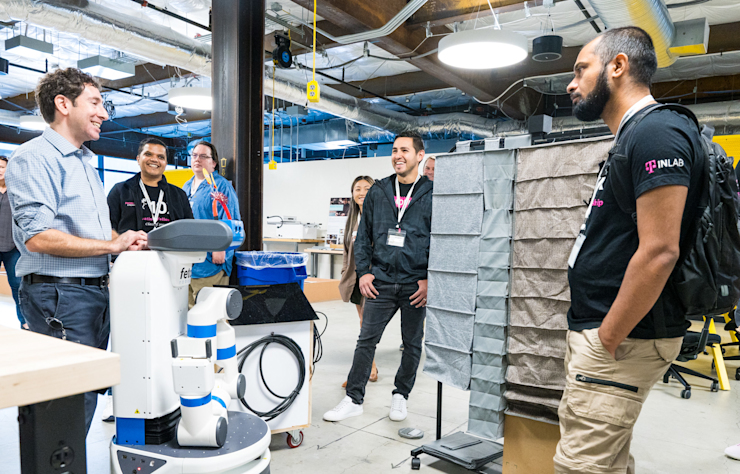
Applied Robotics Solutions
The Robotics Track is the only program at the University of Washington with guaranteed hands-on time with a variety of robotics platforms. It focuses on the practical deployment of robotics in real-world human-facing settings.
As robots are no longer used only in industrial settings but are moving into dynamic, human-occupied spaces with a variety of commercial platforms and applications, there is an increased demand for specialists who can program commercially available robots for a range of solutions.
Many of these skills are also highly transferable to other areas, including self-driving capabilities for cars and other vehicles or advanced unmanned systems (drones) deployment.
Key skills include:
- How robots sense the world around them: sensing, environment mapping, and navigation planning using computer vision and machine learning
- How robots can successfully communicate intent: human-robot interaction concepts and design
- How robots can pick up and move objects: detection and manipulation of objects (including complex non-rigid shapes)
- What environments are suitable for specific types of robots: Understanding infrastructure needs and limitations
- What are emerging service robotics applications: exploring a range of application areas including healthcare, food service, and logistics



